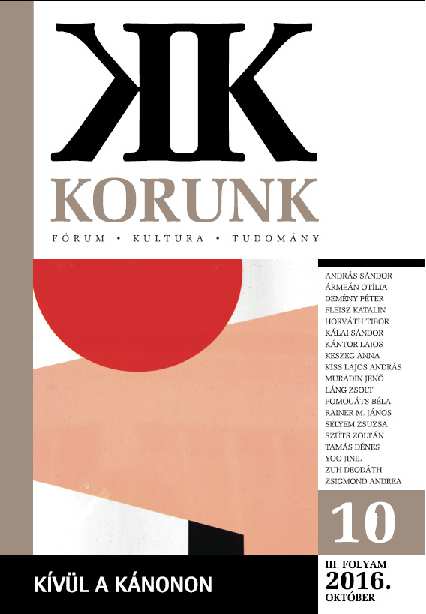
We kindly inform you that, as long as the subject affiliation of our 300.000+ articles is in progress, you might get unsufficient or no results on your third level or second level search. In this case, please broaden your search criteria.

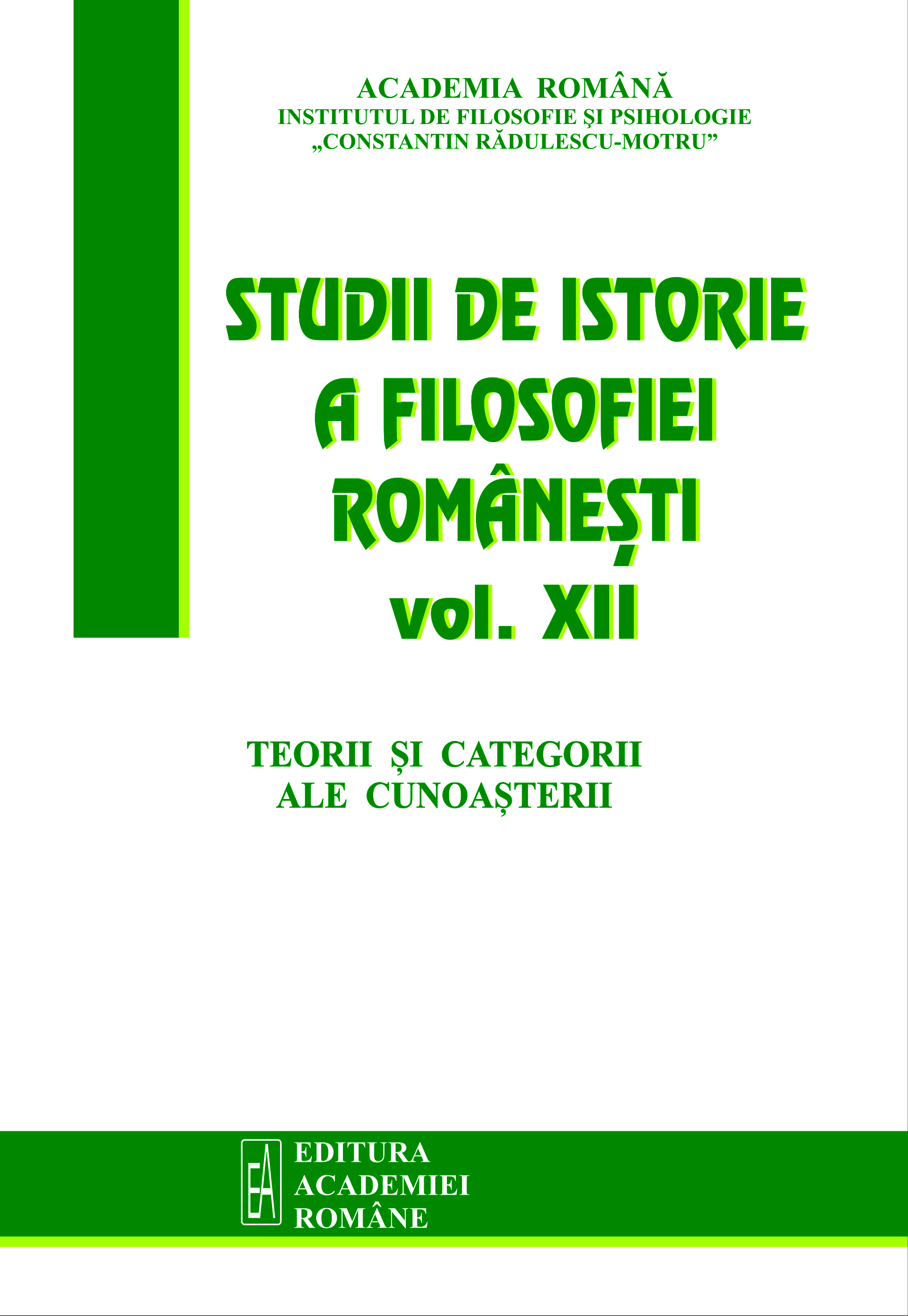
In Mircea Florian’s philosophy, the object of traditional metaphysics is critically disqualified in order to establish the given in general as a new beginning for philosophical thinking. In spite of this explicit departure, Florian’s philosophy of given is still being interpreted as a metaphysical thinking. This paper analyzes Florian’s concept of given and establishes several distinct figures of this concept. It compares them with the ontological and theological objects of traditional metaphysics. It shows that the figures of given work with an ontological postulate while removing an ontological project. On this basis, the author argues that the philosophy of given is both dependent and different from traditional metaphysics. Moreover, the author confirms his thesis with regard to the ontological conception of knowledge, one of Florian’s main theme of interest.
More...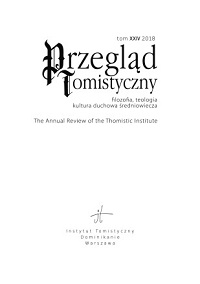
Heymeric de Campo († 1460), whose Tractatus de naturali veritatis catholice circa principia philosophie christiane universalia analesy was critically edited by Zenon Kaluza, is characterized by a singular style, recognizable by its endless sentences often occupying one to several pages. In this contribution I wish to study this particularity from three points of view: 1) What syntactic and rhetorical processes does the author use to compose such long and complex sentences? 2) How should we edit and punctuate these texts without cutting them incorrectly while providing the reader with the necessary hierarchical clues that allow him to construct them without too much effort on his part? 3) What does Heymeric’s preference for endless sentences mean? I would like to show that Heymeric strives to synthesize all the previous traditions, without losing any of their own differences, but without abdicating the ambition to reunify them. His complex sentence, on the verge of explosion, is like the symbol of this recapitulative effort, which reached its final limits before the end of a certain scholastic age.
More...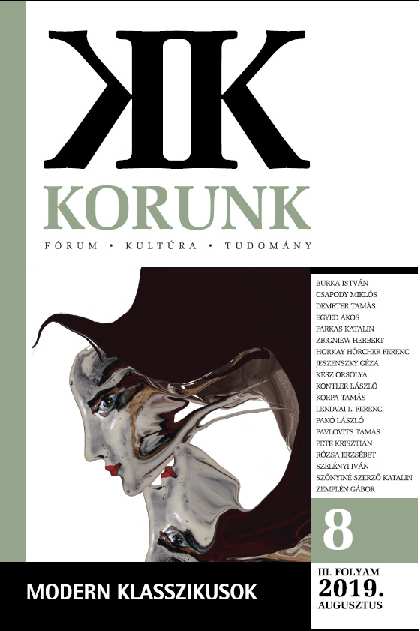

David Hume is a towering figure of the Scottish Enlightenment, of the history of philosophy in general, and his contributions are significant in the history of the human sciences too. Here I focus specifically on the significance of his philosophy for the history of science. If looked at from this angle, Hume’s contributions can be summarized in at least two possible ways: they can be read as contributions to the early history of modern human sciences from cognitive psychology to sociology, and as contributions to the metaphysical and epistemological discourse on then-contemporary knowledge-making practices. Here I propose to read his opus magnum, A Treatise of Human Nature (1739/1740) primarily in the first context (along with his Four Dissertations), and the neat philosophical expositions of An Enquiry Concerning Human Understanding (1748) primarily in the second. An Enquiry Concerning the Principles of Morals (1751) adopts a third perspective of natural history and offers a moral phenomenology that is distinct from both.
More...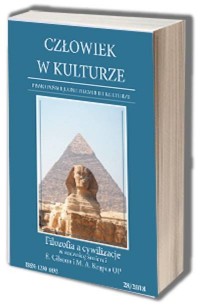
In the article the author tries to prove that we might learn a little from Sienkiewicz about how to communicate the truth using Aesopian speech to elude the latest group of censors and perhaps for a while even elude the grasp of the latest tyrant. I wonder, further, whether we may learn not only how the Christians were persecuted under Nero, and how the Polish people were martyred under the Kulturkampf, but also how all who are martyred can unite their own sufferings with those of Christ crucified, and how, trusting in Him, we may share in his heavenly beatitude.
More...
I wish to propose here some remarks on the notion of modernity, and to suggest that the Middle Ages is no less modern than the times of the same name, but that it is otherwise. My remarks can thus be read as a counterpoint to the debate that extends from Hegel to the great book of H. Blumenberg, La Légitimité des Temps modernes, and as a contribution to the debates of the late twentieth century on humanism, progress and modernity.
More...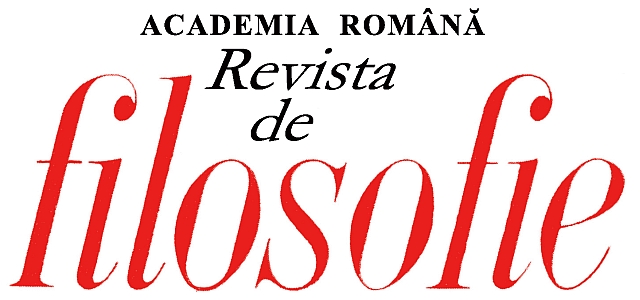
In the year 1935 the Romanian philosopher Mircea Vulcănescu delivered a daily heading on foreign policy issues in a newspaper. My idea is that Vulcănescu wrote his paper based on some philosophical suppositions which gave a theoretical content to his comments. In this paper I have tried to extract these presuppositions regarding the international affairs. Vulcănescu claimed that the conjunctures and the apparently insignificant fact have an essential role in the evolution of international politics. His conception is close to the so called Realpolitik, but he has tried to assert in the same time that the humanistic values have to guide the international affairs in order to have and equilibrium between power and interests, on the one hand, and the public welfare and morality, on the other hand.
More...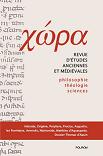
This article aims at showing that the definition of pleasure in Plato’s dialogues cannot be separated from a political educational program and an anthropology that consider pleasure as the main vehicle towards virtue. The political use of pleasure is as important as its definition, insofar as its manifestation and content are the prerogatives of the legislator. All pleasures are politically meaningful in the Republic and in the Laws, and among them especially the triad hunger, thirst and sex; in making pleasures a “public” issue, as pleasures are object of surveillance and political control, Plato gives several means in order to shape the way pleasures are felt in the city, and in order to make the community of pleasure and pain a fundamental role in unifying the city under the reason’s commands.
More...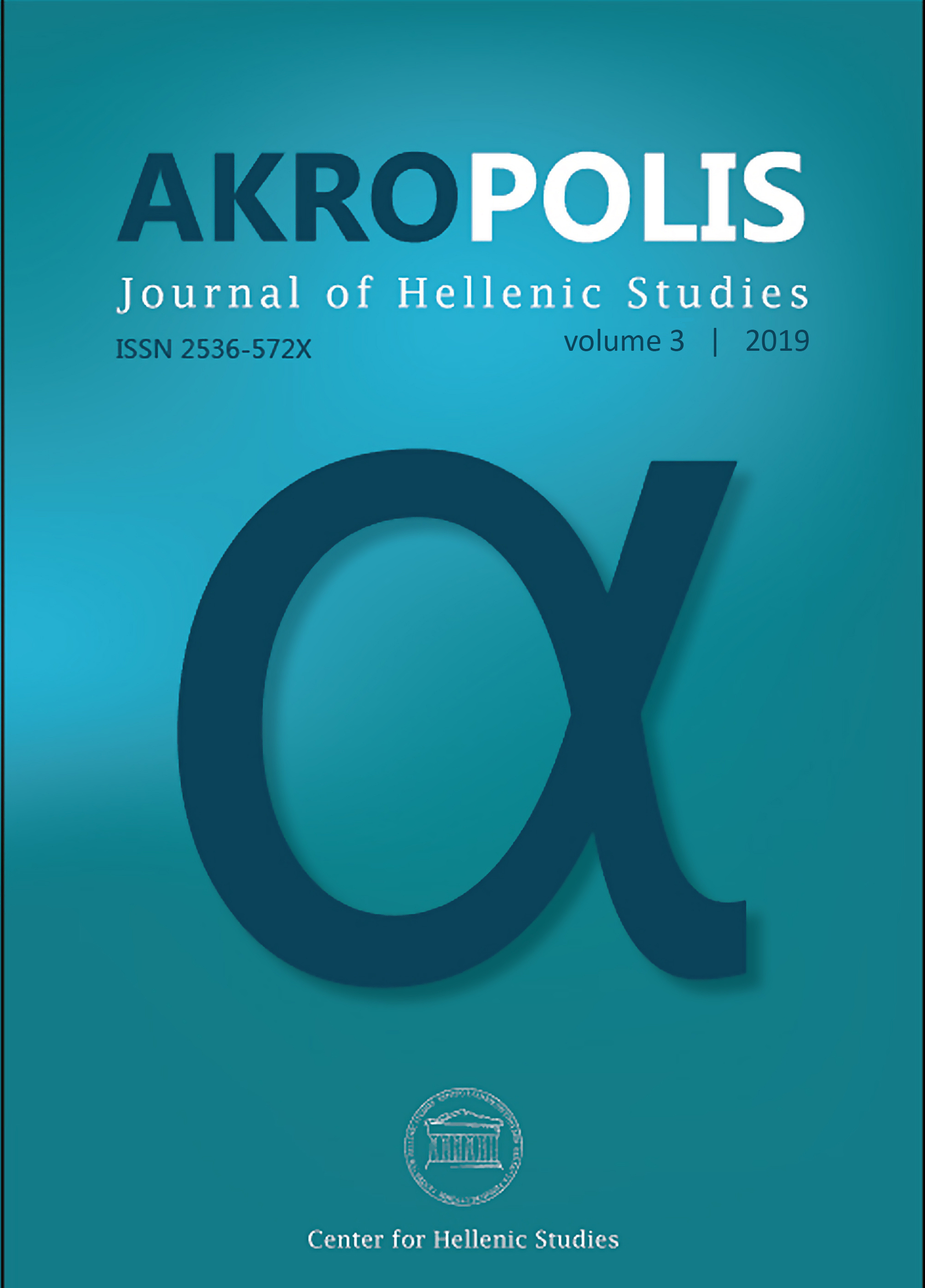
In this paper I examine how Brailas conceives of Modern-Greek identity. After an introduction, I look at Brailian texts where it is emphasized that Hellenism and Christianity are the two components of Greek national identity. Does this mean, though, that for Brailas these two elements express a similar mode of being? There are passages that can support this claim. Still, Brailas’ reader should not suppose that the Corfiote philosopher uncritically assumes a linear transition from Hellenism to Christianity. But if Christianity denotes the emergence of something new in history, how can it be compatible with Hellenism? Brailas’ answer is that as with the Mosaic Law, Christianity did not come to abolish Hellenism, but to fulfill it. Furthermore, the association of Christianity with Hellenism enabled the latter to survive throughout history both in the West and the East. Besides, for Brailas variety has always constituted the “harmony of Hellenism”.
More...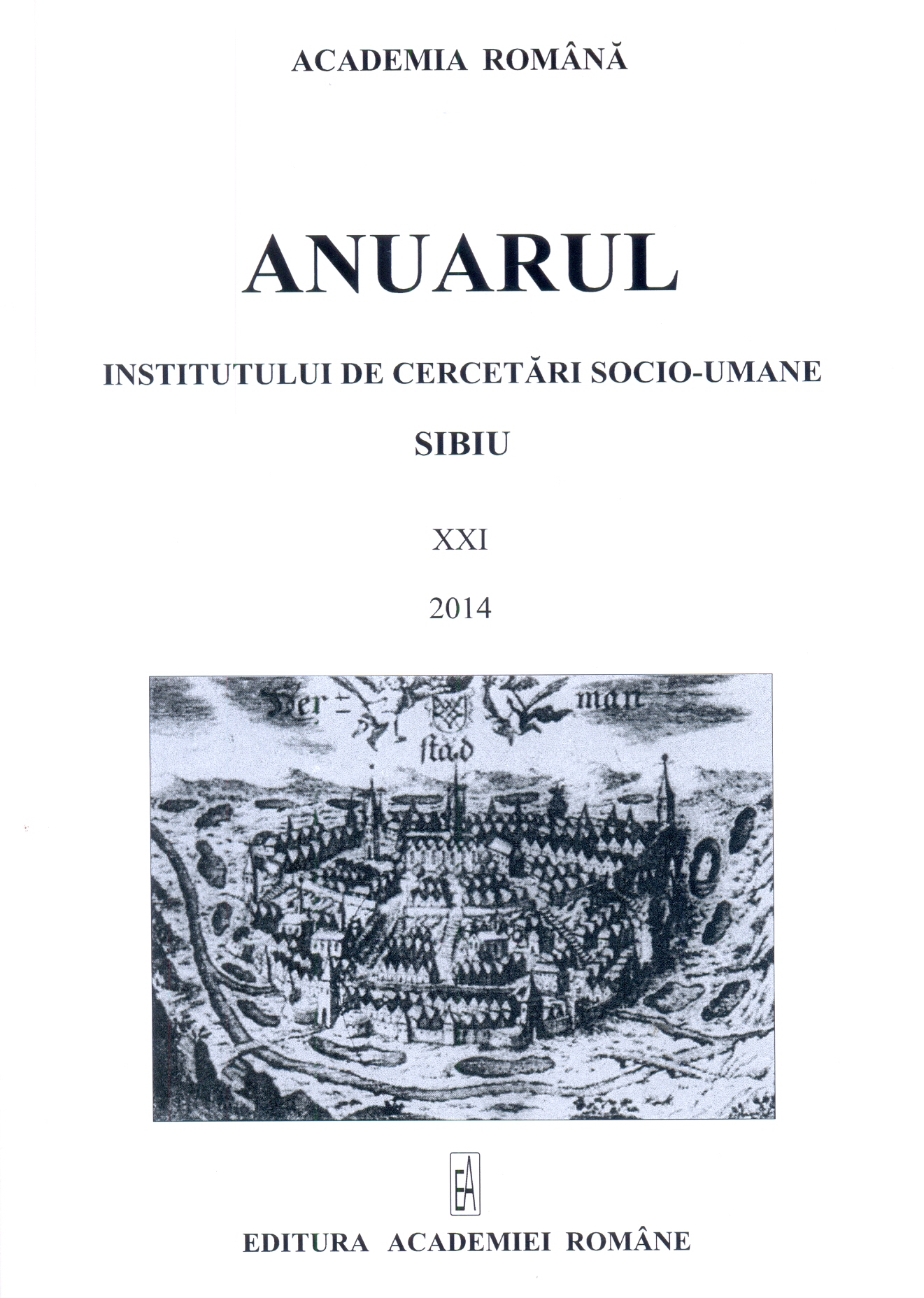
The paper is aiming at analyzing an almost unknown biographical episode of the philosopher Wilhelm Leibniz (1646-1716). In 1713, the Transylvanian chancellary was vacant, and Leibniz, who lived since 1712 in Vienna, where he wished to create a scientific society, applied for this dignity, as he saw himself the only person to meet all the requirements for such a demanding job. Eventually, as he did not want to offend any Transylvanian “natio”, the emperor refused to appoint the famous thinker.
More...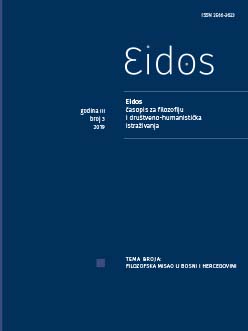
Upravo po svojoj moralno-političkoj raspravi Osnove mudrosti o društvenom uređenju svijeta (Usul al-hikam fi nizam al-›alam) koja spada u domen praktične filozofije, Hasan Kafija Pruščak je i najpoznatiji. Podijeljena je na Uvod (mukaddima), četiri poglavlja (asl - osnova, temelj) i zaključak (hatima). U razradi i formulisanju svoje „Države“ vidljivi su i uticaji inicijalne lektire. To su Anwar at-tansil od Kadi Batydawija, Rawdat al-ahyar ili Rawdat al›-ulama od Muhammada b. Kasima b. Ja›kuba, donekle As-siyasa aš-Šarlyya, odnosno Šerijatska politika, Ibn Taymiya, te Platona i drugih. Kafijevo realistično gledanje na političke događaje svoga vremena neodoljivo podsjeća na Nicola Machiavellija, iako ne postoje podaci da je poznavao ili studirao njegovog Vladaoca (1513).
More...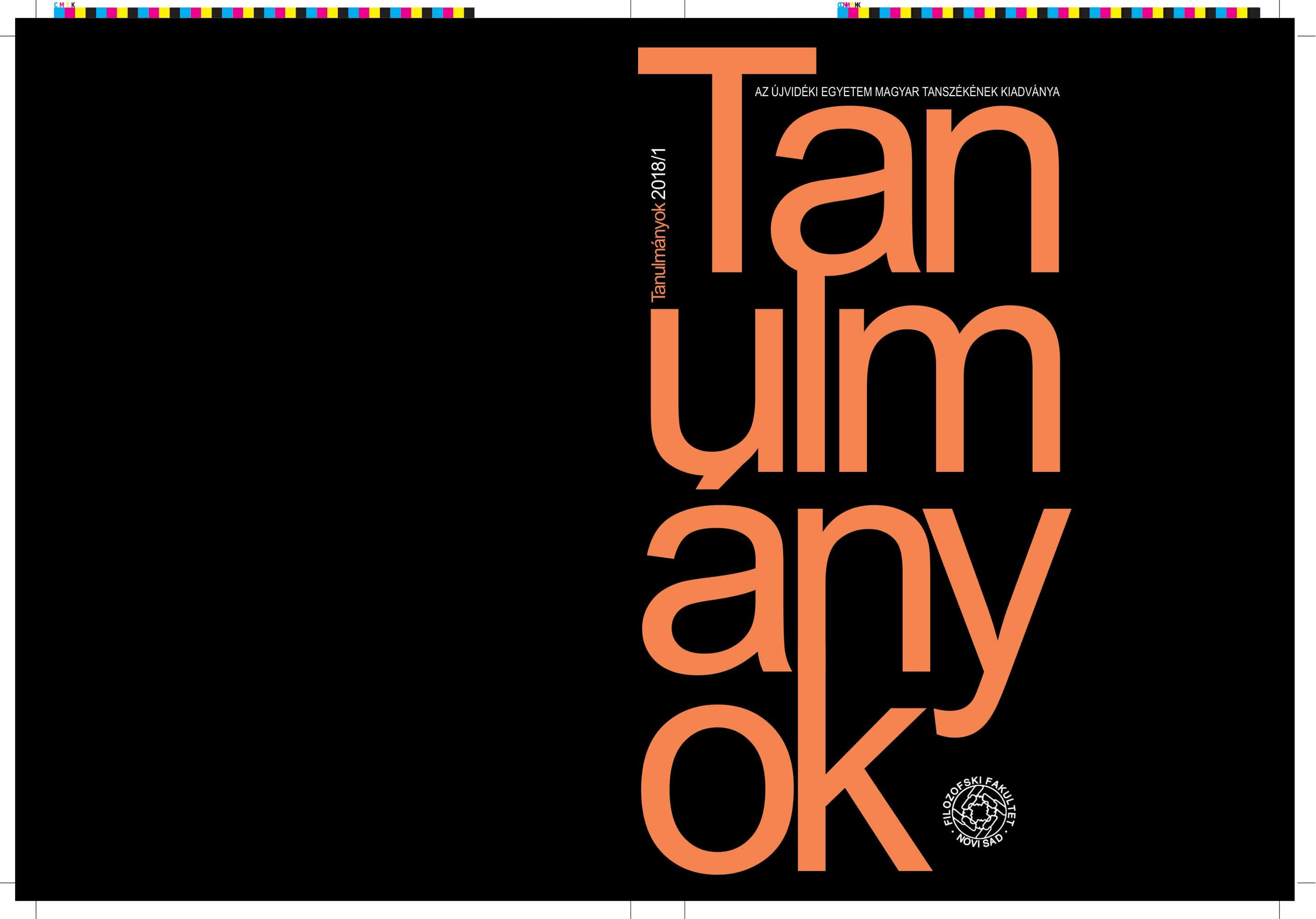
The study investigates one of the best known 19-20th century Hungarian philosopher, Bernhard Alexander (1850–1927), in the context of the Hungarian philosophy tradition. Reception, memory and narrative. Behind these three concepts I show how Alexander was written by his disciples after his death in 1927. In my study I came to the conclusion that until the end of World War II, the well-known Alexander disciples kept the memory of the master alive. The paper examines the merits and mistakes of the Alexander Literature between the two world wars.
More...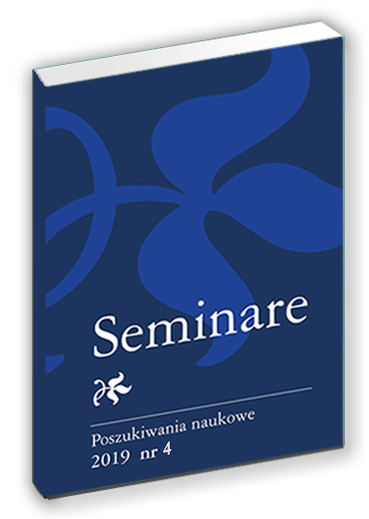
The paper studies the problem of the transcendence of the person suggested by Karol Wojtyła/John Paul II. It originates in the philosophical thought of this Polish personalist and is complemented in his theological works. According to Wojtyła transcendence can be described as “another name for the person” as it is closely related to the fulfilment of man as a personal being. The paper contains analyses of three dimensions of transcendence, and these are: 1) transcendence in action; 2) transcendence towards another “I”; and 3) transcendence towards personal God.
More...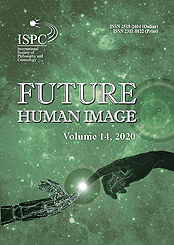
The article deals with the history of the Kyiv philosophical school of the second half of the twentieth century as one of the main and topical objects of the historical and philosophical study of the formation of a modern national Ukrainian philosophical tradition. An extensive and often controversial set of scientific and non-scientific definitions and characteristics suggests the need to study this phenomenon both as a scientific and socio-cultural one using little-studied primary sources. The initial generalizing examination of a significant part of the memoirs of the creators of mentioned school, mainly a series of autobiographical reconstructions of Academicians S. Krymskyi, V. Horskyi, M. Popovych, realized in T.Chaika’s project “The Philosophers’ Oral Histories” as the actual approach in the branch of history of the recent Ukrainian philosophy, allows admitting this school the main center of the revival of interrupted by the Stalinist repressions in the 1930s institutional philosophizing at the Academy of Sciences of the Ukrainian SSR. The studied inflorescence of their personal visions of the Kyiv philosophical school,like a number of original biographical reconstructions of some their colleagues, gives a foundation to estimate this school as an exceptional phenomenon in the history of domestic philosophy, namely the leading ideological and organizational academic-institute capital’s center-school of institutionalization of the Ukrainian philosophic tradition as a national one in Ukraine in the second half of the twentieth —the first decades of this century.
More...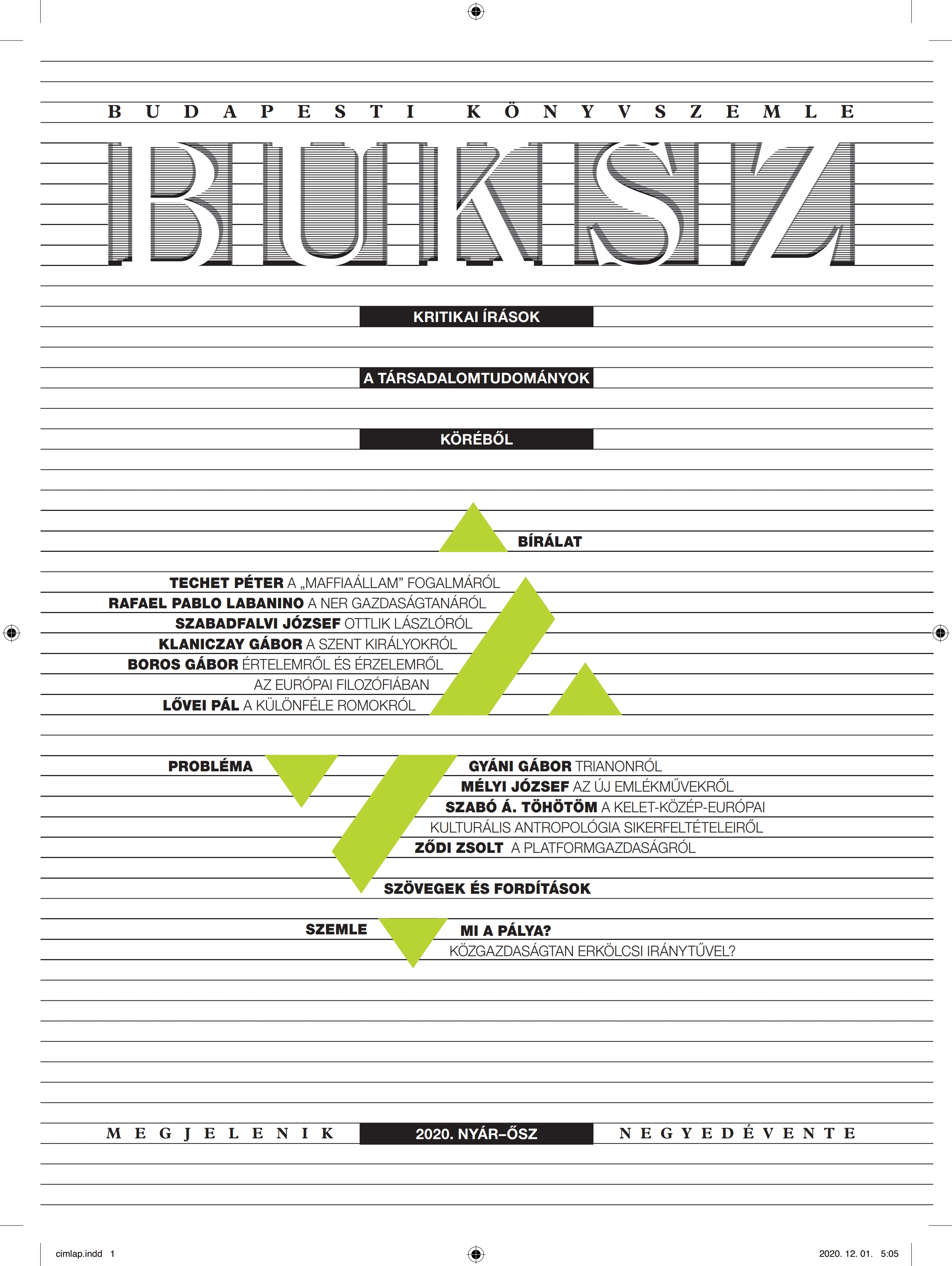
Max Weber: A protestáns etika és a kapitalizmus szelleme. A kritikai kiadás alapján készült új fordítás. Fordította: Ábrahám Zoltán. Szerkesztette, a jegyzeteket és az utószót írta: Hidas Zoltán. Teológiai lektor: Rácsok Gabriella. L’Harmattan, Bp., 2020., 283 old. (Ars Sociologica sorozat)
More...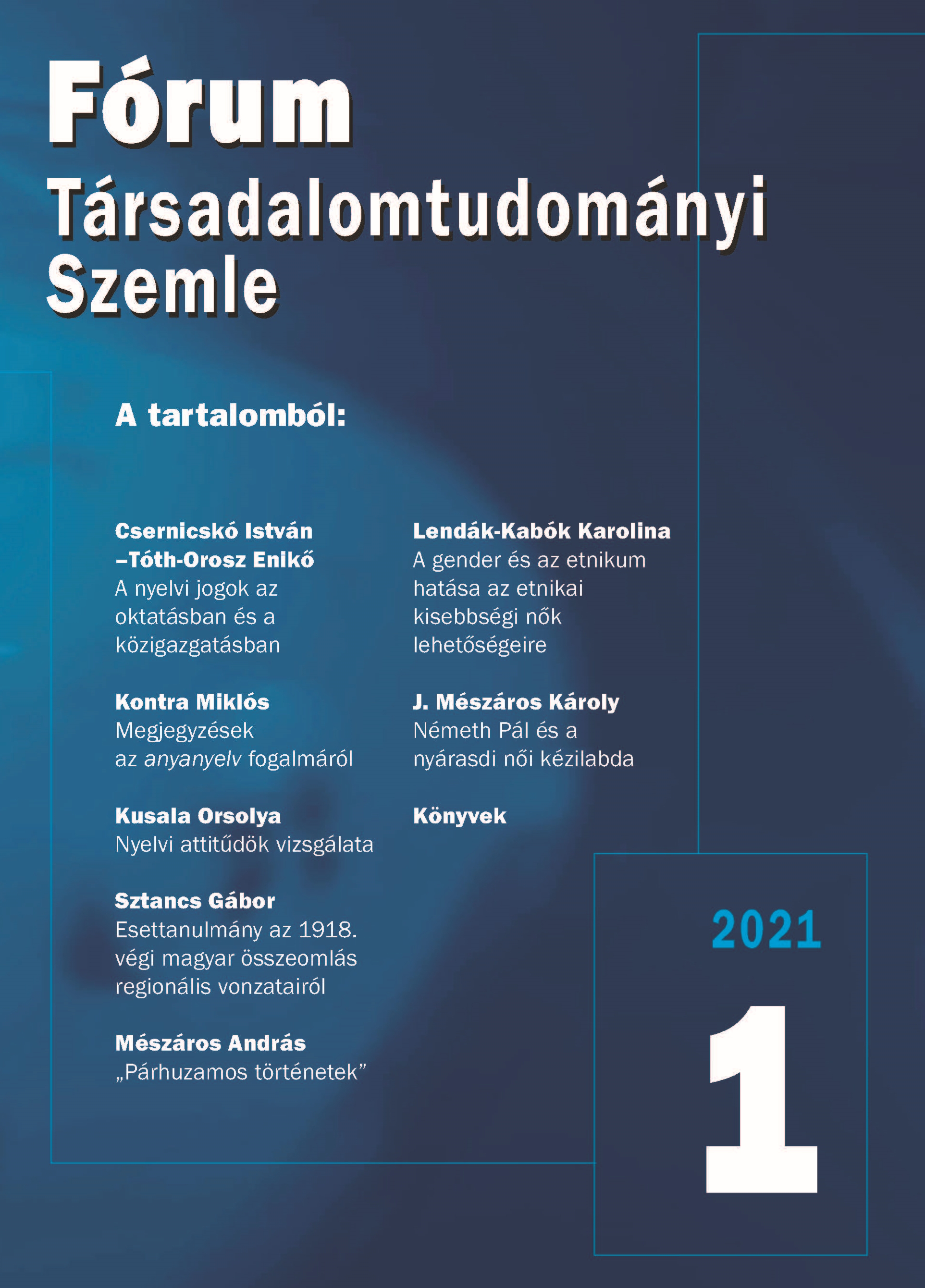
This study is a summary of a professional resume and a thirty-year history of a philosophical discipline. Its topic is the identification of methodological innovations in the historiography of Hungarian philosophy from the point of view of whether this story can be written as a unified narrative. It shows the process by which this historiography leaves the former positivist and Marxist perspectives and the way how it rearranges the canon. In the meantime, it also names the most important players in the canon revision. Finally, it comes to a partially proven hypothesis, according to which the history of Hungarian philosophy can be understood as the history of discourse forms.
More...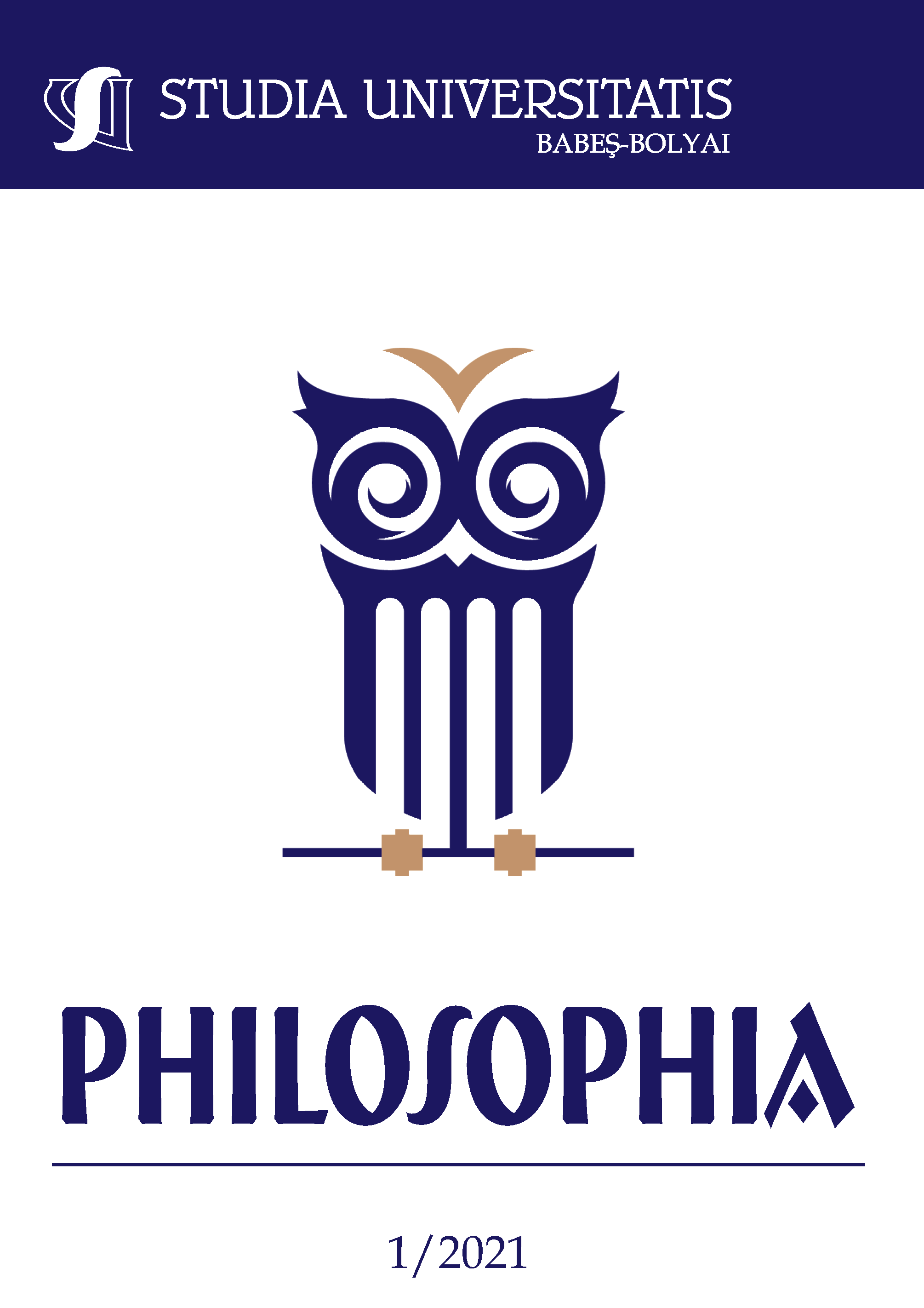
Hermeneutical Considerations on Heidegger’s Black Notebooks and on the Revisiting of his Path of Thinking I. Starting with preliminary philological-hermeneutical considerations concerning the way Heidegger’s Black Notebooks can and should be dealt with, as well as concerning the question what tasks may be derived from them for future research, the paper attempts to discuss the Black Notebooks applying a variety of methods and multiple approaches. Themes that are discussed at more or less length include: Time factor and the formulation of our task; explanation and understanding or the way a philosophical path should be approached and dealt with methodically (hermeneutically); the theme related to “Heidegger and anti-Semitism” and the question concerning individuality; prejudices from a hermeneutical perspective and the way to deal with them; relapses and their philosophical explanation; missing and increased sensibility; Heidegger and Hegel; equivocality and the dark side of the “formal indication”; Lukács, Scheler and the devil; Heidegger’s great being-historical treatises and their greatness; suggestions for a reconsideration of Heidegger’s way of thinking. -- One important hermeneutical claim brought to bear on the various discussions is this: just as it would be inappropriate in our dealing with Heidegger’s texts to disregard Heidegger’s own self-interpretations, it would be no less inappropriate to consider those self-interpretations--which themselves call for interpretation--as telling us the sole and ultimate truth.
More...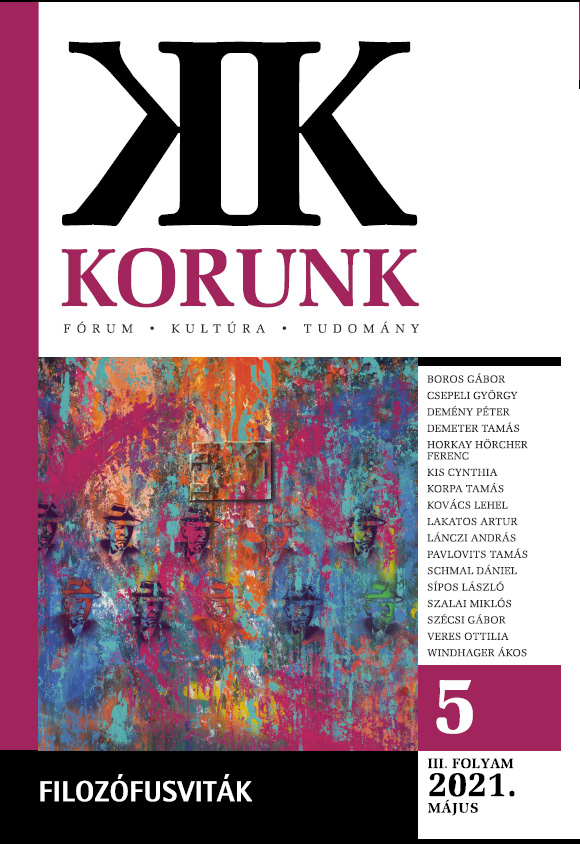
The article addresses two different but interrelated questions as to the methodology of the history of philosophy after the end of the great narratives. The first concerns the criteria by which historical debates can be identified as “philosophical”. The second deals with a particular debate at the beginning of modern times on the use of certain techniques of dissimulation: mental reservation and ambiguity. The idea is that by exploring this particular debate, one can gain important insights into the nature of philosophical debates in general. To this end, we describe the background of this controversy, observe the different philosophical justifications behind the techniques proposed, and explain the moral and political consequences of the positions. The conclusion is that no clear definition can be applied to philosophical problems as philosophical ones. The more rigorously we enforce a priori criteria, the less the real issues can be understood. That said, the lesson is not that the philosophical approach must be abandoned, but that a kind of “double vision” is to be applied to the problems under study. What it means is to keep in mind the criteria of philosophical reasoning on the one hand, and to be prepared to give them up when necessary, on the other.
More...
The essay explores the potential contributors and positions in a “Streit um die Wissenssoziologie” that could have taken place in Hungary. Mannheim’s sociology of knowledge was surrounded by heated controversies in Germany, and it seems that a similarly fruitful and insightful debate could have arisen in Hungary too between the two world wars. Although the debate has never took place, it is possible to construct its prospects and potentials from the otherwise advocated positions on the Hungarian scene. The positions discussed here include “geistesgeschichtlich” approaches represented by Lajos Fülep, Gyula Kornis, Gyula Szekfű and Tivadar Theinemann. The paper also dwells on the contributions of Mihály Babits and István Hajnal.
More...